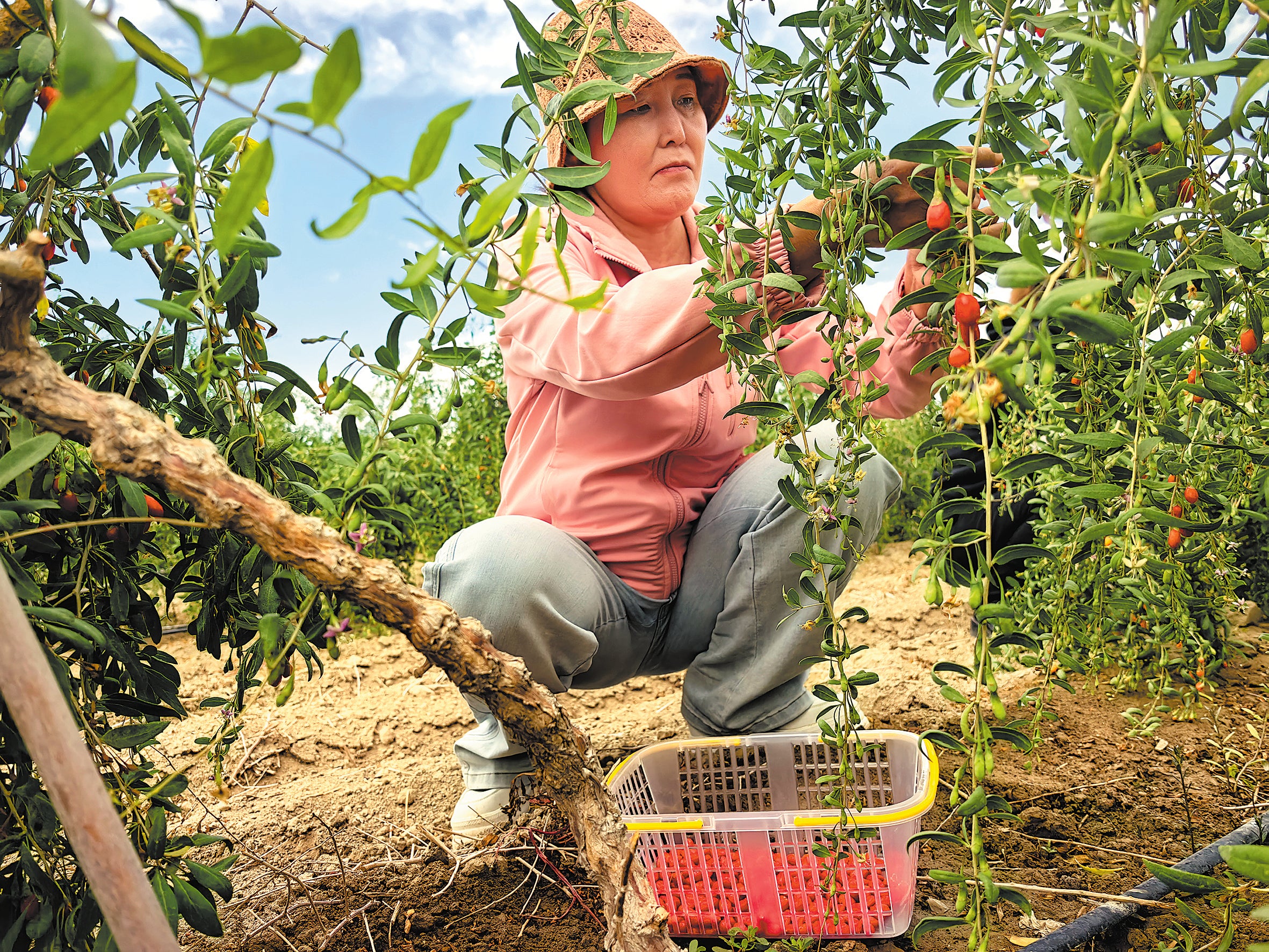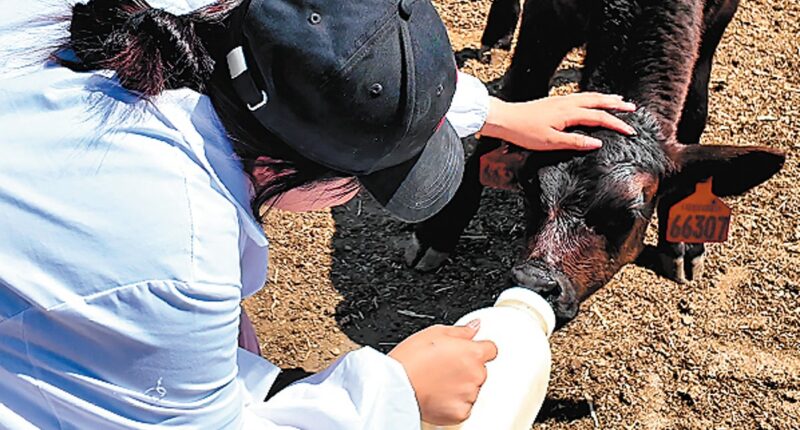In the sheds of Tianlai Livestock Group in Bole, Xinjiang Uygur autonomous region, cattle are raised in comfort and “live a happy life”.
They drink temperature-controlled water, feed on organic grains and wear smart collars that track their health around the clock. Some are even massaged to relieve itches and improve circulation. These measures aim to not only build a domestic premium beef brand, but also lift farmers’ income and drive rural vitalisation in the region.
As the only beef enterprise in China with organic certification covering the entire production chain, Tianlai manages procedures from forage cultivation and cattle breeding to processing and sales. Its 16,479-acre organic feed base and national breeding stations in the Bortala Mongolian autonomous prefecture mainly supply high-quality Angus and Hereford beef.
The beef products have been supplied to major sports events such as the 19th Asian Games in Hangzhou, Zhejiang province, and the FISU World University Games 2023 in Chengdu, Sichuan province, according to Bole’s agriculture and rural affairs bureau.
Fu Qiang, head of the bureau, said Tianlai has introduced more than 15,000 high-quality cattle and involved several thousand local households in breeding better cattle varieties. “Efforts are being made to link leading enterprises with farmers and herders. We have explored various cooperative models to ensure benefits for farmers,” Fu said.

As China’s beef market has faced volatility, with prices falling to decade-low levels in 2024, the largest cattle breeding company in northwestern China has prioritised quality products. By focusing on high-quality beef, it has shielded its supply chain and created new opportunities for herders, said Wang Chuang, head of Tianlai’s processing division.
“I’m confident that the quality of our beef is not inferior to any imported product,” Wang said. “More importantly, our model ensures that farmers can steadily increase their income.”
Through its “distributed farming” model, more than 4,000 households in the prefecture now raise cattle under Tianlai’s guidance. Farmers typically raise calves to a weight of 440 to 880 pounds , with standardised feed provided by the company. Tianlai then buys back the animals at guaranteed prices and raises them to full size at its facilities.
“The system stabilises earnings for farmers while ensuring we have a reliable supply chain,” Wang said. A farmer raising 200 cattle can see annual profits of about 200,000 yuan (£20,900) under the model, he added.
In Jinghe county, about 60 miles east of Bole, cultivation of cotton and goji berries is bringing fresh vitality to villages long rooted in farming traditions.
Harvest season for the county’s 180,390 acres of cotton started in September, with 230 cotton pickers working in the fields to bring the fluffy bolls home before November.
In Shartur village, one of Jinghe’s oldest cotton-growing areas with more than 40 years of cultivation, harvest time means fierce competition among buyers eager to secure high-quality cotton.
“Seed selection, field management, and scientific fertilisation are key to better yields,” said Ding Hongshan, a local farmer. “Now, with guidance from experts and new equipment, it takes just 10 hours to harvest over 16.48 acres.”
In 2025, the yield of his fields is expected to reach an above-average ratio of 7.5 metric tonnes per hectare, generating him annual net income of around 100,000 yuan (£10,450).
Agricultural specialists from the prefecture regularly provide farmers with tailored advice, Ding said. With technical knowledge and mechanisation applied in the fields, cotton has become a pillar crop, securing incomes and financial stability for villagers.
Apart from cotton, September also sees the harvesting of goji berries. Earlier last month, Dilnur, a farmer in Jinghe, filled her basket with the bright red berries.
In autumn, she picks around 44 pounds a day earning her over 100 yuan (£10.46). “In summer, the income can climb to 200 (£20.92) or 300 yuan (£31.38) a day,” she said.
Beyond picking, she livestreams goji berry products on video platforms such as Douyin and Kuaishou, selling to buyers in southern Xinjiang.
According to the Jinghe Agriculture and Rural Affairs Bureau, 28.75 tonnes of fresh goji berries were sold last year fetching an average price of £5.97 per pound, greatly increasing local farmers’ incomes.









